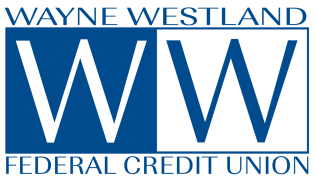An FHA loan is a mortgage that’s guaranteed by the government’s Federal Housing Administration. Because of this guarantee, FHA loans are more available to homebuyers who do not qualify for traditional mortgages.
Should I get an FHA loan?
FHA loans are great for anyone, but they’re especially good for those who:
• Are first-time homebuyers
• Have a lower income or credit score
• Have a higher debt-to-income ratio
So … what are the benefits?
• Lower down payment – These loans require a down payment lower than what is generally required for a conventional loan.
• Use of gift funds – This means that gift funds from friends or family can be used to pay for your down payment or closing costs.
• Lower credit score requirements – FHA does not overlook poor credit entirely, but if you’ve made credit mistakes in the past you still have a chance to qualify. Credit score requirements for an FHA loan can vary by lender.
• Less money in the bank – Conventional mortgages generally require that buyers have a large reserve of funds in the bank. FHA loans on the other hand only require you to have one month’s worth of reserves saved.
• Help with closing costs – FHA loans allow sellers to contribute a much larger amount towards closing costs than with a conventional loan. In some cases this amount can be enough to cover all, or most, of closing costs.
• Assumability – FHA loans are assumable, meaning that if you get an FHA loan now, a future buyer of your home could take over that loan instead of getting a new mortgage.
• Larger debt-to-income (DTI) ratios – FHA loans will generally allow for a higher DTI ratio than conventional loans. This can be beneficial to recent college graduates with a lot of student loan debt. To calculate your debt-to-income ratio, divide your monthly debt payments by your gross monthly income.
Some downsides…
• Mortgage Insurance Premium and Upfront Mortgage Insurance Premium – In order to protect the government, FHA loans require a Mortgage Insurance Premium that’s charged monthly. This premium can cost nearly double what Private Mortgage Insurance is on a conventional loan. FHA loans also require an Upfront Mortgage Insurance Premium for the cost of insuring the loan.
• Loan limits – The limit on how much money can be borrowed is lower for an FHA loan. The loan limits depend on where a home is located.
• Property standards – FHA loans require stricter standards for a property’s condition than conventional loans. A fixer upper or a home that would require costly repairs immediately, may be ineligible for an FHA loan.
Review your options.
Although there are some downsides to FHA loans, to the right buyer the good outweighs the bad. If you’re a first time homebuyer, college graduate with student debt, or just looking for a lower down payment option, FHA loans may be right for you.
Interested in an FHA loan or want to discuss your options? Our partner, Mortgage Center, is here to help. To get started, call 800.353.4449 or visit MortgageCenter.com.
Information as of February 2019.
Equal Housing Lender Mortgage Center NMLS# 282701


